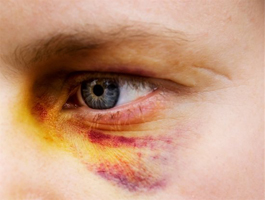 Almost five months after it was due, the State’s Attorney General’s Office issued its report on a proposed bill that would allow for electronic monitoring of certain offenders convicted of domestic violence. The report casts doubt on how reliable the program would be and raises issues about its cost.(1)
Almost five months after it was due, the State’s Attorney General’s Office issued its report on a proposed bill that would allow for electronic monitoring of certain offenders convicted of domestic violence. The report casts doubt on how reliable the program would be and raises issues about its cost.(1)
Lisa’s Law, named after Letizia Zindell, a Toms River woman killed by her former fiancé in 2009, calls for the monitoring of certain domestic violence offenders by use of a GPS system that would warn their victims if they were in close proximity. For the monitoring system to work, both abusers and victims would be equipped with a GPS devise. The law was to be tested with a pilot program in Ocean County.(1)
The bill won unanimous approval by State lawmakers at the end of last year, but was conditionally vetoed by Gov. Christie pending review by the State Attorney General to establish if the necessary technology was available. Although the report was due this past May, it was not released until October 1.(2)
In the report, the Attorney General pointed out that a similar monitoring system is already used by the State’s parole board to track certain offenders deemed to be high-risk and expressed concern with increasing the program to include both offenders and victims of domestic violence. Among areas of concern addressed were the unreliability of the necessary technology, which could give victims a false sense of safety, and the possibility the devices could be used by both offender and victim to harass each other. The report also raised questions about the willingness of victims to be monitored and the cost-effectiveness of the program. It was estimated that the pilot program alone would cost up to $2.4 million to implement.(2)
Assemblyman Troy Singleton, a Democrat from Burlington County, questioned the thoroughness of the research behind the report, noting it only cited examples from three counties located in Kansas, Minnesota and Missouri to back up its findings. Mr. Singleton, who together with Assemblyman Ron Dancer (R-Ocean County) has re-introduced the bill, cited a contrasting study conducted by the U.S. Department of Justice in 2012. According to that study, 149 out of 616 respondents representing 43 states, the District of Columbia and Puerto Rico used GPS technology to monitor domestic violence offenders.(2) Continue reading ›
 For victims of domestic abuse, freeing themselves from the relationship is paramount to their safety. While divorce is one solution, it may not be as easy as it sounds, and the courts are not always prepared to help.
For victims of domestic abuse, freeing themselves from the relationship is paramount to their safety. While divorce is one solution, it may not be as easy as it sounds, and the courts are not always prepared to help. New Jersey Family Law Blog
New Jersey Family Law Blog




 Restraining orders don’t just go away. That’s the lesson one New York couple learned after a routine traffic stop in New Jersey led to the driver’s arrest on contempt of court charges stemming from violation of an outstanding protection order.
Restraining orders don’t just go away. That’s the lesson one New York couple learned after a routine traffic stop in New Jersey led to the driver’s arrest on contempt of court charges stemming from violation of an outstanding protection order. If Gov. Chris Christie signs a pending Bill before the current legislative session ends this week, certain
If Gov. Chris Christie signs a pending Bill before the current legislative session ends this week, certain 
